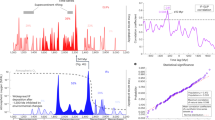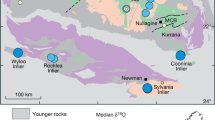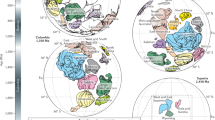Abstract
DR. R. H. RASTALL'S interesting article in NATURE of May 2, p. 646, raises what is perhaps the most difficult problem or group of problems that geophysicists have yet to solve. In considering the origin of the continents, the essential points to be explained are the restriction of the continental blocks to little more than one-third of the earth's surface and the marked asymmetry of their distribution. The formerly popular “tetrahedral” hypothesis, apart from its descriptive inadequacy, has hitherto failed hopelessly when confronted with the principle of isostasy. It clearly implies a process of lateral differentiation whereby the earth's store of granite could become strongly concentrated at the corners and along the edges of the alleged tetrahedron, leaving the interior of the faces, corresponding to the oceanic areas, substantially free from granite. Otherwise the tetrahedral form would be unstable and therefore temporary. No one, however, has succeeded in devising any workable process arising out of the earth's contraction which would lead to such lateral concentration of the continental rocks.
This is a preview of subscription content, access via your institution
Access options
Subscribe to this journal
Receive 51 print issues and online access
$199.00 per year
only $3.90 per issue
Buy this article
- Purchase on Springer Link
- Instant access to full article PDF
Prices may be subject to local taxes which are calculated during checkout
Similar content being viewed by others
Author information
Authors and Affiliations
Rights and permissions
About this article
Cite this article
HOLMES, A. The Origin of the Continents. Nature 115, 873–874 (1925). https://doi.org/10.1038/115873a0
Issue Date:
DOI: https://doi.org/10.1038/115873a0
Comments
By submitting a comment you agree to abide by our Terms and Community Guidelines. If you find something abusive or that does not comply with our terms or guidelines please flag it as inappropriate.



